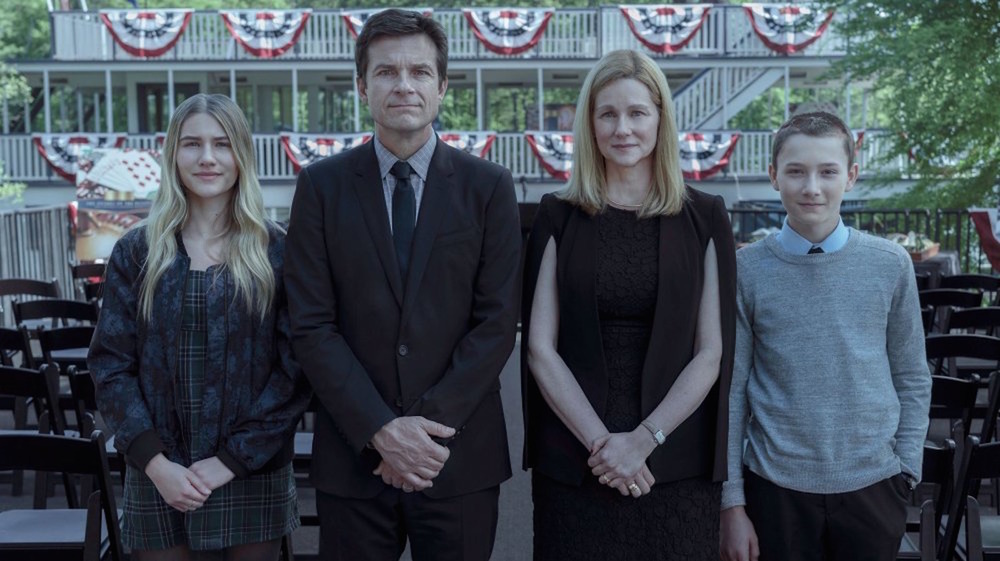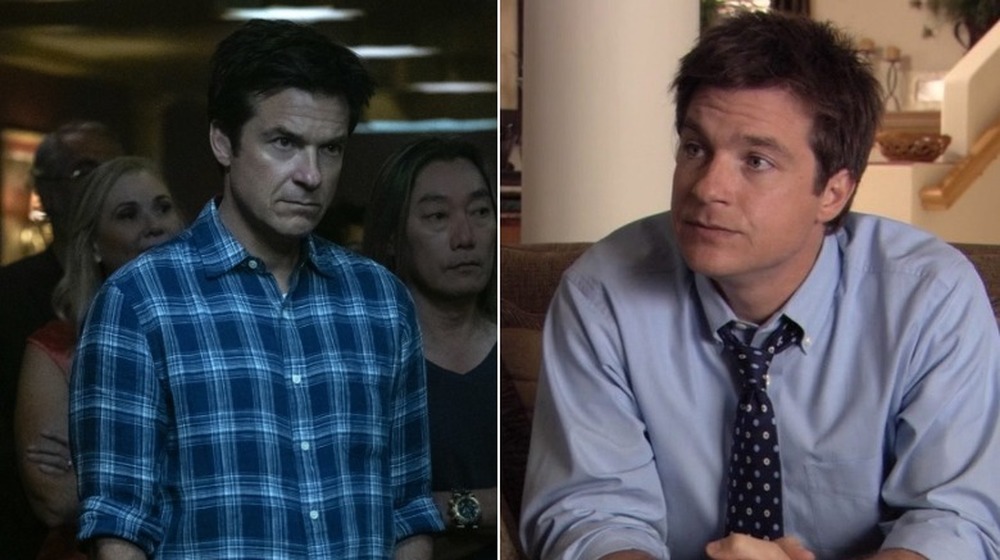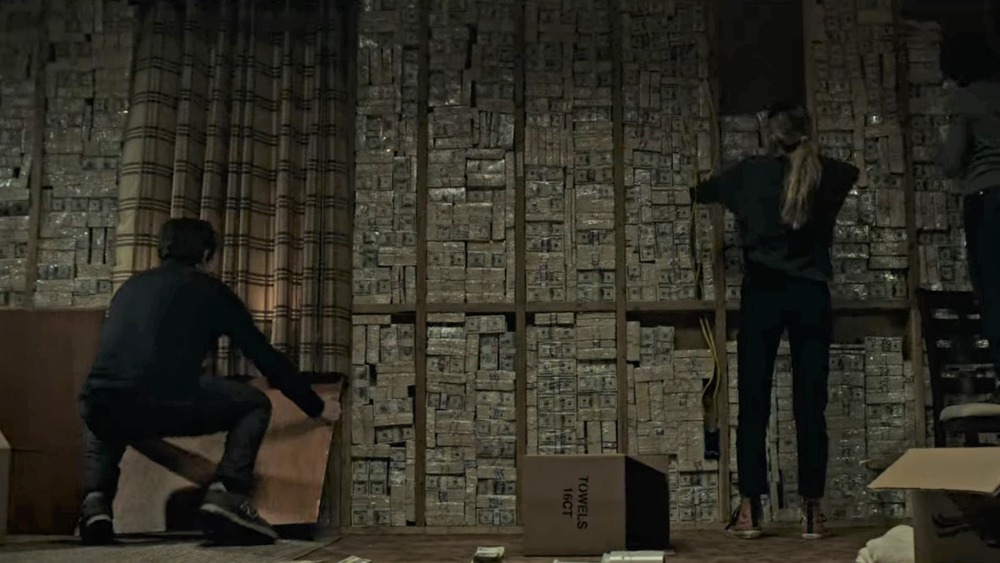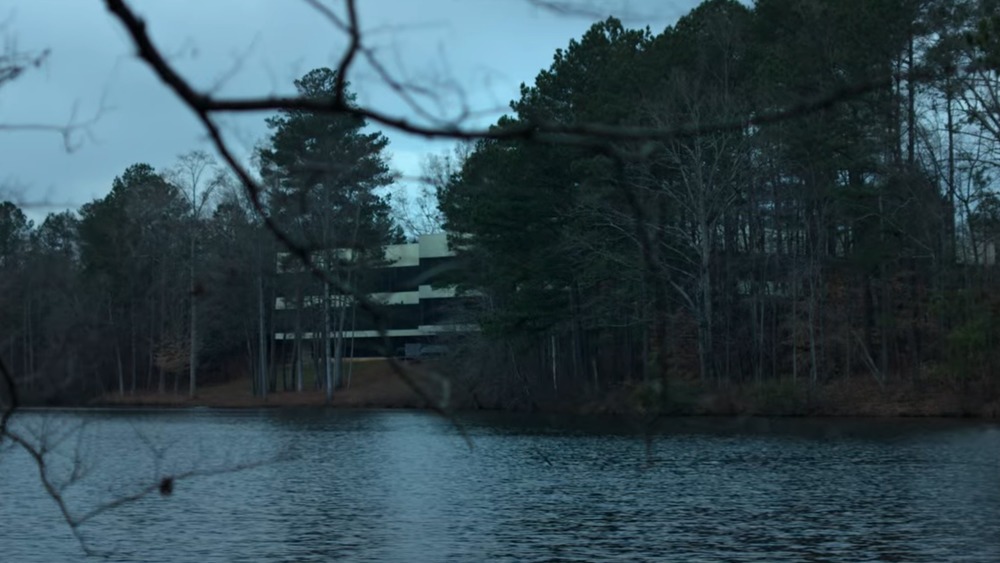The Arrested Development References You Missed In Ozark
After getting started as a child star and then rising to prominence as the ultimate comedic straight man in the 2000s, Jason Bateman took an unexpected career turn and signed on to star in, produce, and occasionally direct Netflix's intense crime drama Ozark. Although seemingly mild-mannered Marty Byrde is a character that fits well in Bateman's career of khaki-clad roles, the violent and uncompromising world of the show is a definite shift in tone from the goofiness of Bateman's previous projects, most notably the iconic Arrested Development.
The sitcom has developed such a cult following that it has become a bit like a sun that the careers of its stars still orbit. Even in his most serious projects, fans are always going to be looking for comparisons to Bateman's performance as Michael Bluth. In the case of Ozark, the tone of the series may be dramatically different than Arrested Development, but there is more crossover between the two shows than first meets the eye.
Bateman himself even acknowledged this in an interview with Esquire. While saying there's no planned Arrested Development Easter Eggs in Ozark, when asked about the similarities between Michael Blue and Marty Byrde, he did say, "It's not surprising that anyone would pick up the similarities in those characters, because I really enjoy playing parts that are less about trying to convince the audience that I am somebody else, but is really somebody that they are familiar with and comfortable with."
So, whether or not the references are intentional, here are a few other similarities between Arrested Development and Ozark you may not have noticed.
'Now, the story of a wealthy family who lost everything ... '
Despite the fact that Ozark is a (literally) dark drama that features gruesome violence and some of the most disturbing characters on TV fans can't help but hate, there are more than a few similarities between its basic plot and that of Arrested Development.
The show begins with Marty Byrde moving his family to the Ozarks in order to right the ship after there are some major hiccups in his criminal side-hustle as a money launderer. This is more or less the same basic setup as Arrested Development. While Michael Bluth isn't the one whose criminality causes the upheaval, the series still begins with Bateman's character giving up other opportunities to fix things after it comes to light that the family business may have been involved in some light treason. While the Byrdes have to give it all up and move from bustling Chicago to the stagnant Ozarks, the Bluths all relocate to a shoddily built model home in the middle of an unfinished housing development.
In addition to a similar setup, both series' focus on a family that is constantly reacting to the consequences of the criminal activity they've been engaging in. Arrested Development's take on this theme is obviously much lighter and more absurdist, but it wouldn't be hard to make the case that in some ways, it explored a lot of similar themes as Ozark does. With different lighting and goofier background music, Ozark basically is Arrested Development.
There are also a few specific moments from Ozark that will have Arrested Development fans wondering if the former series is continuing a few of the Fox sitcom's long-running callback jokes.
There's always money in the Blue Cat Lodge
In the season 1 episode "Coffee, Black," Marty and Wendy get an unpleasant influx of money that the cartel expects them to not only sit on, but also figure out how to launder. Having $50 million in cash show up at your doorstep might seem like a dream, but not when you take into consideration how many literal bills that represents. With nowhere else to store the truckload of money, Marty seemingly taps into an instinct from a previous life and decides to hide it in the walls of the hotel he's using as a shell company, the Blue Cat. As Reddit user u/AtLeastItsNotCancer put it in a thread they created about possible Arrested Development-Ozark overlap, "There's always money in the Blue Cat lodge."
The whole scene should make Arrested Development fans think of one thing: "There's always money in the banana stand." That phrase is uttered by Michael Bluth's father, George Bluth Sr. (Jeffrey Tambor), multiple times in the sitcom's season 1 episode "Top Banana" after Michael complains about the urgent need for an influx of cash. Michael thinks he's making a veiled reference to the insurance policy on the family's boardwalk business, the Bluth's Original Frozen Banana stand, and so he burns it to the ground expecting to collect a payout. Only afterward does George Sr. inform him that he was, in fact, being literal, and that there was $250,000 in cash hidden in the walls of the banana stand.
While they exist in separate TV universes, Marty Byrde seems to have taken the lesson learned by Michael Bluth to heart.
Why Chareth Cutestory would be proud of Marty Byrde
At its heart, Arrested Development is a comedy of errors and misunderstandings. One of the most famous situations Michael Bluth finds himself caught in occurs when, in an attempt to have a frivolous one-night-stand, he meets a woman at a bar and invents a new identity for himself so that she won't be able to track him down the next day. Michael, being Michael, concocts a story on the fly that he's an attorney named Chareth Cutestory who specializes in maritime law. "The lawyers of the sea," if you will.
Funnily enough, the extremely specific laws governing bodies of water end up playing an important role in season 2 of Ozark. While trying to shake down the Snells to force them to sell land to the Byrdes so that they can build a casino to expedite their money laundering, Marty and cartel lawyer Helen (Janet McTeer) use an even more obscure type of water-based legal gymnastics to out-maneuver Jacob Snell (Peter Mullan): riparian rights. Granted, riparian rights are more an issue of land use law than maritime law, but you get the point. It's close enough to be interesting, and it's a clever play that would surely make Chareth Cutestory proud.
Let's hope there are even more little threads to pull when the gritty sequel series to Arrested Development returns for its fourth and final season on Netflix.



